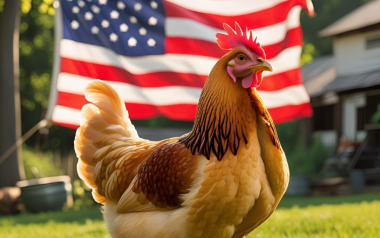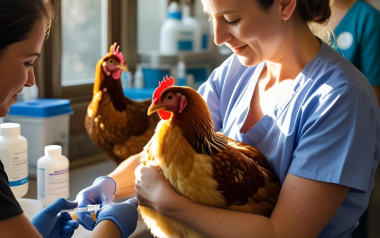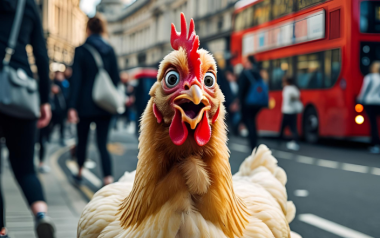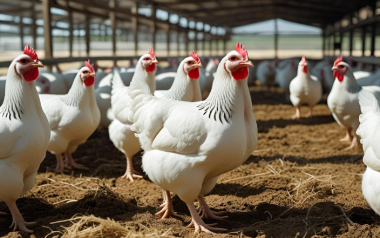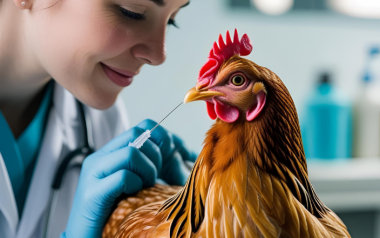Sources: Available upon request.
03 Jul 2024
Excrement in the chicken coop: developing fecal-based diagnostic tests for broilers
A veterinary pathologist from Western College of Veterinary Medicine (WCVM) wants “to get the poop” on developing new biomarker-based diagnostic tests for broiler chickens by running laboratory tests with their feces.
In the world of poultry farming, ensuring the health and safety of broiler chickens is crucial. One area of concern is the transmission of harmful bacteria, such as Clostridium perfringens, which can lead to foodborne illnesses. To address this, a veterinary pathologist from the Western College of Veterinary Medicine (WCVM) is pioneering a unique approach: using feces to develop diagnostic tests based on biomarkers.
The research
Dr. Susantha Gomis, BVSc, PhD, professor and head of the Department of Veterinary Pathology at WCVM, has received $170,000 in funding from the Saskatchewan Agricultural Development Fund. Gomis is collaborating with fellow University of Saskatchewan (USask) researchers Dr. Musangu Ngeleka, a microbiologist at Prairie Diagnostic Services, and Dr. Suresh Tikoo, a professor at the university’s School of Public Health and associate member in the WCVM’s Department of Veterinary Microbiology, to conduct this research work. His goal? To create faster diagnostic tests for broiler chickens by analyzing fecal samples. But why focus on feces?
The importance of fecal testing
- Safety first: Dr. Gomis emphasizes that this research is a matter of food safety. As the Canadian poultry industry gradually reduces the prophylactic use of antibiotics in broiler production, timely and accurate diagnostics become critical.
- Short lifespan: Broiler chickens are ready for slaughter at just five to six weeks of age. Any delays due to illness can have costly consequences.
The approach
Dr. Gomis collaborates with other researchers at the University of Saskatchewan (USask), including Dr. Musangu Ngeleka (microbiologist at Prairie Diagnostic Services) and Dr. Suresh Tikoo (professor at the School of Public Health). Together, they aim to develop rapid diagnostic tests akin to COVID-19 tests for humans.
Metabolomics technology
Instead of nasal or oral samples, the team collects fecal samples from broiler chickens. Using metabolomics technology, they identify individual molecules associated with avian diseases. These tests could provide quick results, allowing farmers and veterinarians to take timely action.
Dr. Goomis and his team hope that this research work will help veterinarians quickly diagnose diseases in poultry so that flocks can be treated accordingly. This diagnostic tool will help support the poultry industry while protecting consumers from contracting foodborne diseases from undiagnosed infected animals.
Gomis expects to complete the feasibility of using this technology to diagnose broiler diseases within the next three years.
Conclusion
As the poultry industry evolves, innovative approaches like fecal-based diagnostics play a vital role in safeguarding both chicken health and human consumers. Dr. Gomis and his team are paving the way for a safer and more efficient broiler production system.








